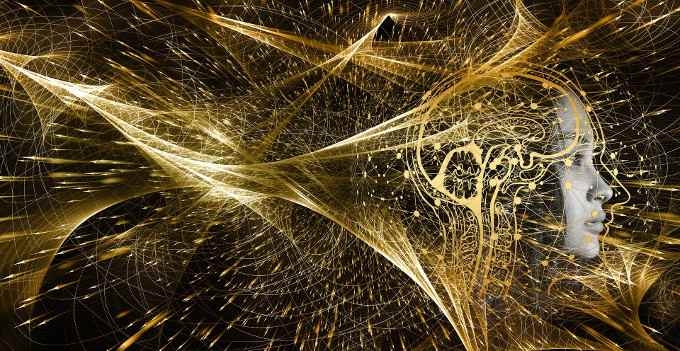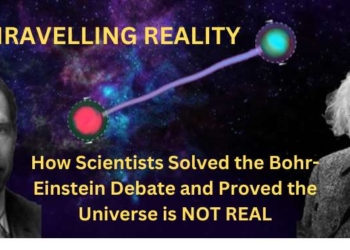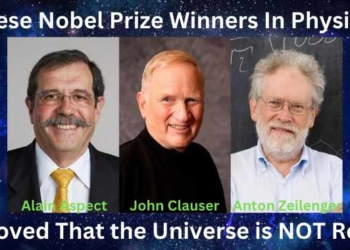
By
In Brief
- The Facts:Professor of Physics and Astronomy at Johns Hopkins University Richard Conn Henry published a paper in the journal Nature titled “The Mental Universe” emphasizing how metaphysics plays a central role in understanding the nature of our reality.
- Reflect On:Are we metaphysical beings? What impact does our collective consciousness have on our physical material reality and the overall human experience? Is our consciousness manipulated in any way today?
What Happened: In 2005, Professor of Physics and Astronomy at Johns Hopkins University Richard Conn Henry published a paper in the journal Nature titled “The Mental Universe.” In it, he writes the following:
A fundamental conclusion of the new physics also acknowledges that the observer creates reality. As observers, we are personally involved with the creation of our own reality. Physicists are being forced to admit that the universe is a “mental” construction.
Pioneering physicist Sir James Jeans wrote: “The stream of knowledge is heading toward a non-mechanical reality; the universe begins to look more like a great thought than like a great machine. Mind no longer appears to be an accidental intruder into the realm of matter, we ought rather hail it as the creator and governor of the realm of matter… The universe is immaterial-mental and spiritual.
The underlying idea he’s getting across with this statement is that in some way shape or form, consciousness is directly intertwined with what we perceive to be our physical material world and that the nature of reality is made up of non-physical “stuff.”
He goes on to emphasize how, in the modern-day scientific world, “there have been serious attempts to preserve a material world – but they produce no new physics, and serve only to preserve an illusion.” This illusion he refers to again is the idea that the makeup of our reality is strictly and fundamental physics.”
Physicists shy from the truth because the truth is so alien to everyday physics. A common way to evade the mental Universe is to invoke ‘decoherence’ — the notion that ‘the physical environment’ is sufficient to create reality, independent of the human mind.
Nikola Tesla is often attributed with saying, “The day science begins to study non-physical phenomena, it will make more progress in one decade than in all the previous centuries of its existence.” Many scientists, I would say the majority of scientists in this field all feel the same way, yet there is still a tremendous lack of attention paid to immaterial science in the mainstream academic world. This is odd given the fact that at the highest levels of government, usually with the Department of Defense, a non-physical phenomenon like telepathy, clairvoyance, remote viewing, precognition, and more are all and have been heavily studied and verified for a very long time. These phenomena are within the realm of parapsychology, which is directly intertwined with quantum physics.
What convinced me was just the evidence, the accumulating evidence as I worked in this field and I got to see more and more of the evidence. I visited the laboratories, even beyond where I was working to see what they were doing and I could see that they had really tight controls…and so I got convinced by the good science that I saw being done. And in fact I will say as a statistician I’ve consulted in a lot of different areas of science; the methodology and the controls on these experiments are tighter than any other area of science where I’ve worked. – Dr. Jessica Utts, the Chair of the Department of Statistics at the University of California, Irvine and a professor there since 2008. (source)
A paper published in Frontiers of Neuroscience Emphasizes:
Research on parapsychological phenomena (psi) is being carried out in various accredited universities and research centers throughout the world by academics in different disciplines trained in the scientific method (e.g., circa 80 Ph.D.s have been awarded in psi-related topics in the UK in recent years). This research has continued for over a century despite the taboo against investigating the topic, almost complete lack of funding, and professional and personal attacks (Cardeña, 201). The Parapsychological Association has been an affiliate of the AAAS since 1969, and more than 20 Nobel prizewinners and many other eminent scientists have supported the study of psi or even conducted research themselves (Cardeña, 2013).
So why is there such strong resistance? Could it simply be the implications with regards to the findings within these realms are too great? When physics changes, so do global paradigms and the perceptions people have of our world. Some discoveries literally have the ability to shatter the way we perceive our modern-day world, and perhaps change the way we live and even have us question the way we live.
Cassandra Vieten, Ph.D. and President/CEO at the Institute of Noetic Sciences, an organization founded by Apollo 14’s Dr. Edgar Mitchell to study consciousness and its relationship with the nature of our reality, offers a thoughtful explanation:
There seems to be a deep concern that the whole field will be tarnished by studying a phenomenon that is tainted by its association with superstition, spiritualism and magic. Protecting against this possibility sometimes seem more important that encouraging scientific exploration or protecting academic freedom. But this may be changing. (source)
Take, for example, prominent physicist Lord Kelvin, who stated in the year 1900 that, “There is nothing new to be discovered in physics now. All that remains is more and more precise measurement.” It wasn’t long after this statement when Einstein published his paper on special relativity. Einstein’s theories challenged the accepted framework of knowledge at the time and forced the scientific community to open up to an alternate view of reality.
















